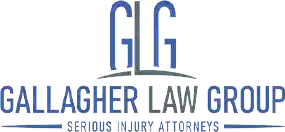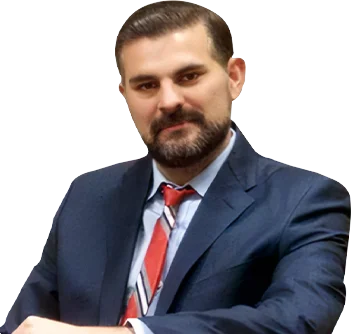A sudden accident on a Phoenix roadway can leave victims shaken, injured, and unsure of what to do next. Amid the chaos and confusion, one of the most critical steps is collecting the right documentation. Why? Because what you gather in the moments and days following a collision can become the backbone of your legal claim.
According to GLG Personal Injury Lawyers, documentation is more than just paperwork; it is your evidence, your truth, and your power in a legal system that demands proof. As attorney Glenn Leung says, “When you collect the right evidence, you give yourself the strongest voice in court or at the negotiating table.”
To help you better understand what you need, our experienced Phoenix car accident lawyers have created this guide to answer your questions and equip you with the knowledge to take the right steps after an accident.
Immediate Evidence at the Scene
One of the most crucial moments for gathering evidence is immediately after the accident. If you are safe and able, begin collecting information as soon as possible before leaving the scene.
Police Reports
Always call the police after a car accident in Phoenix, regardless of how minor it may seem. The officer’s accident report often includes:
- Time, date, and location of the accident
- Involved drivers and witnesses
- Preliminary findings on fault
- Statements made at the scene
These official reports carry weight with insurers and courts alike. Ask the officer for the report number so you can request a copy later.
Photographs and Video
Use your phone to capture the scene from every angle. Focus on:
- Damage to all vehicles involved
- Road conditions, traffic signs, or skid marks
- Any visible injuries
- License plates and vehicle positions
Photographs are objective and can preserve crucial details that may fade from memory.
Witness Statements
Ask for names and contact information from anyone who saw the accident occur. If they are willing, have them give a brief recorded statement using your phone or write a short note. Eyewitness accounts can support your version of events and challenge disputed narratives.
Medical Documentation: Your Injuries Matter
One of the biggest mistakes injury victims make is waiting to see a doctor. Even if you feel fine, symptoms of serious injuries like concussions or soft tissue damage may not show up for hours or days.
Emergency Room or Urgent Care Records
Seek medical attention immediately. Save all records from your visit, including:
- Admission paperwork
- Diagnosis and treatment plans
- Imaging results (X-rays, CT scans)
- Prescriptions or discharge summaries
These records create a timeline between the crash and your injuries.
Follow-Up Treatment
Do not stop after the first visit. Continue with follow-ups, physical therapy, or referrals as needed. Keep a file with:
- Dates of all appointments
- Medical bills and co-pay receipts
- Notes from doctors on limitations or work restrictions
These documents demonstrate the long-term impact of the accident on your health and ability to work or live a normal life.
Insurance and Communication Logs
In the days following the accident, you will likely speak with multiple insurance representatives. Every conversation matters.
Insurance Correspondence
Start a folder for:
- Claim numbers and adjuster names
- Emails and letters from insurance companies
- Denial letters or requests for additional information
This helps avoid confusion and can prove useful if the insurance company later disputes coverage.
Personal Notes
Keep a dated journal of:
- Pain levels
- Emotional struggles
- Limitations in daily activities
- Missed work or events
Journaling may feel personal, but it paints a powerful picture of your suffering. These records can be compelling in both negotiations and trials.
Employment and Income Records
Were you unable to work after the crash? Proving lost wages is not just about showing a paycheck; it requires supporting documentation.
Pay Stubs and Tax Returns
Collect:
- Recent pay stubs
- W-2s or 1099s
- Employer verification of missed workdays
For self-employed individuals, bank statements and profit/loss reports may be required. These numbers help your attorney calculate what the accident has truly cost you financially.
Vehicle Repair and Property Damage Documentation
Was your vehicle damaged or totaled? Was any personal property inside damaged during the crash?
Repair Estimates and Bills
Save every document related to your vehicle, including:
- Tow receipts
- Auto body shop estimates
- Final repair invoices
- Photos of damage before and after repairs
If the vehicle is declared a total loss, retain documents showing its pre-accident value.
Property Loss
Items like phones, laptops, or even children’s car seats damaged in the crash should be documented with:
- Receipts
- Replacement costs
- Photos
In many cases, these losses are recoverable as part of your settlement.
Why Documentation is the Cornerstone of Your Legal Case
As any experienced car accident lawyer in Phoenix, AZ will tell you, documentation builds credibility. Without it, insurance companies may question your injuries, deny liability, or undervalue your claim.
According to GLG Personal Injury Lawyers, clients who come prepared with complete records often receive faster, more favorable settlements.
What If You Missed Collecting Something?
It is not unusual for accident victims to forget something in the midst of the confusion. If you left the scene without taking photos or getting witness names, you may still have options:
- Revisit the scene to photograph road conditions
- Request surveillance footage from nearby businesses
- Have your attorney issue subpoenas or investigate further
An experienced Phoenix, Arizona accident attorney can help fill in the gaps and ensure your claim is supported by every piece of available evidence.
Working With an Attorney Who Understands the Process
At GLG Personal Injury Lawyers, we believe every accident victim deserves representation backed by compassion, skill, and proven experience. Our firm has roots in Phoenix and understands the nuances of Arizona injury law. When you work with an auto accident lawyer in Phoenix, you do not face insurance companies alone; we stand beside you every step of the way.
We help our clients:
- Gather and organize their documentation
- Communicate with insurance companies
- Calculate the full value of their claim
- Advocate for fair compensation in court if necessary
You do not have to handle the aftermath of a crash by yourself. Let our team support your recovery and protect your future.
Your Evidence Tells Your Story
The moments after a car accident are confusing, painful, and overwhelming. But by taking small steps to document what happened, you lay the foundation for a powerful legal case.
Whether you are still at the scene, receiving medical care, or months into your recovery, it is never too late to begin building your file. The right documentation does more than help your lawyer; it helps you tell the truth of your experience.
If you or a loved one has been injured in a Phoenix car accident, contact GLG Personal Injury Lawyers for a free consultation. We are here to listen, guide, and fight for the justice you deserve.



